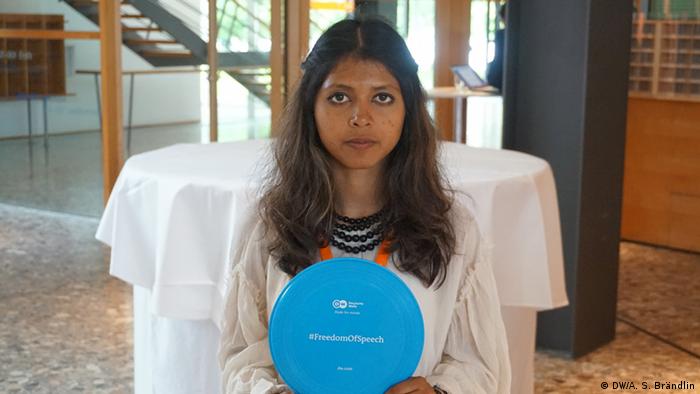 Calling Prophet Muhammad a pedophile does not fall within freedom of speech: European court
Calling Prophet Muhammad a pedophile does not fall within freedom of speech: European courtThe ECHR ruled against an Austrian woman who claimed calling the Prophet Muhammad a pedophile was protected by free speech. The applicant claimed she was contributing to public debate.
An Austrian woman's conviction for calling the Prophet Muhammad a pedophile did not violate her freedom of speech, the European Court of Human Rights ruled Thursday.
The Strasbourg-based ECHR ruled that Austrian courts carefully balanced the applicant's "right to freedom of expression with the right of others to have their religious feelings protected, and served the legitimate aim of preserving religious peace in Austria."
Read more: ECHR rules Muslim schoolgirls must take swimming classes in Switzerland
The woman in 2009 held two seminars entitled "Basic Information on Islam," during which she likened Muhammad's marriage to a six-year-old girl, Aisha, to pedophilia.
Limits of free speech
The marriage according to Islamic tradition was consummated when Aisha was nine and Muhammad was around 50. Aisha was the daughter of Muhammad's best friend and the first caliph, Abu Bakr.
The court cited the Austrian women stating during the seminar that Muhammad "liked to do it with children" and "... A 56-year-old and a six-year-old? ... What do we call it, if it is not pedophilia?"
An Austrian court later convicted the woman of disparaging religion and fined her €480 ($546). Other domestic courts upheld the decision before the case was brought before the ECHR.

#FREEDOMOFSPEECH ACROSS THE WORLD
Shammi Haque, blogger, Bangladesh
"People in Bangladesh can't say what's on their mind. There is no freedom of speech at all and every day the situation is getting worse. I'm a social activist and blogger and my topics include religion. Islamists don't like this. They already killed six bloggers - my friends - so I decided to leave the country. I want to return but I don't know when and if it will be safe."
123456789101112131415
The women had argued that her comments fell within her right of freedom of expression and religious groups must tolerate criticism. She also argued they were intended to contribute to public debate and not designed to defame the Prophet of Islam.
No intention of promoting public debate
The ECHR recognized that freedom of religion did not exempt people from expecting criticism or denial of their religion.
However, it found that the woman's comments were not objective, failed to provide historical background and had no intention of promoting public debate.
The applicant's comments "could only be understood as having been aimed at demonstrating that Muhammad was not worthy of worship," the court said, adding that the statements were not based on facts and were intended to denigrate Islam.
It also found that even in a debate it was not compatible with freedom of expression "to pack incriminating statements into the wrapping of an otherwise acceptable expression of opinion and claim that this rendered passable those statements exceeding the permissible limits of freedom of expression."
www.fotavgeia.blogspot.com

Δεν υπάρχουν σχόλια:
Δημοσίευση σχολίου